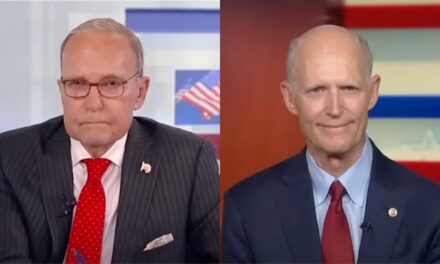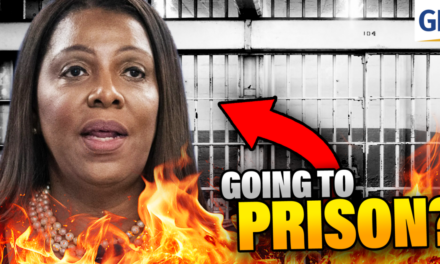We support our Publishers and Content Creators. You can view this story on their website by CLICKING HERE.
[responsive voice_button voice=»US English Female» buttontext=Listen to Entry]
White evangelical voters have shown steadfast support for Donald Trump throughout his political career.
In the 2016 presidential election, approximately 81% of white evangelical Protestants voted for Trump—a record for this demographic. This trend continued in 2020, when 84% of white evangelical Protestants supported him.
In the 2024 election, white evangelical support remained a key factor in Trump’s victory, with early exit polls showing Christian voters favoring him by nearly a two-to-one margin.
This unwavering support highlights the alignment between Trump’s policies and the priorities of white evangelical voters.
Several factors drive this consistency. Trump’s stances on issues such as abortion, religious freedom, and conservative judicial appointments resonate with evangelical values, with many evangelicals viewing him as a defender of Christian interests.
His rhetoric about preserving traditional American values appeals to evangelicals concerned with cultural changes, making faith a significant factor in shaping political preferences within this community.
After Trump’s victory speech on Wednesday morning at the Palm Beach Convention Center, dozens of his supporters sang “How Great Thou Art,” symbolizing the strong evangelical support he enjoys.
According to AP VoteCast, a comprehensive survey of over 120,000 voters, around 8 in 10 white evangelical voters backed Trump, a margin that mirrors his 2020 support within this group.
Robert Jeffress, pastor of First Baptist Church in Dallas and a prominent Trump supporter since 2016, described the election as a “great victory.”
“Yes, there were significant faith issues for evangelicals, but evangelicals are also Americans,” Jeffress said.
“They care about immigration; they care about the economy.”
Jeffress noted that fears of Trump imposing an oppressive theocracy were unfounded, emphasizing Trump’s lack of interest in banning same-sex marriage or instituting an absolute abortion ban. https://firstdallas.org/
Evangelical leaders supporting Trump expect to regain White House access similar to his first term.
Trump himself has expressed a sense of divine purpose in his leadership. Reflecting on a near-fatal assassination attempt, he stated, “God saved my life for a reason… to save our country and restore America’s greatness.”
In contrast, Catholic voters have shown more varied levels of support for Trump, with their backing influenced by differences in church doctrine and social views. While some Catholics, particularly conservative ones, resonate with Trump’s positions on abortion and religious freedom, others are less aligned with his policies.
Trump has traditionally gained support from Catholics who prioritize conservative values, but many moderate and liberal Catholics show reservations about his approach to immigration and social justice, central tenets in Catholic social teaching. This divide within the Catholic community shows a more nuanced relationship compared to white evangelical voters.
According to early exit polls published by the Washington Post November 5, Republican president-elect Donald Trump received a much higher margin of support from Catholics than he did in 2020
The Republican platform has pledged to defend both Christians and Jews facing persecution, as well as the right to “pray and read the Bible in school.” Trump promised support for priorities like backing Israel and opposing transgender rights, aligning with the evangelical belief in traditional gender roles.
Evangelicals, though disappointed by his moderation on some anti-abortion measures, see him as a preferable choice over Harris, known for her strong pro-abortion stance.
During his campaign, Trump emphasized protecting Christians in public life, schools, the military, and government, addressing concerns about church-state relations and defending Christian symbols in public spaces.
While Catholic voters may share certain values, the diversity within the Catholic vote reflects a broader range of priorities, with less cohesive support for Trump than the evangelical base.
Joana Campos es abogada y editora con más de 10 años de experiencia en la gestión de proyectos de desarrollo internacional, enfocada en la sostenibilidad y el impacto social positivo. Actualmente dirige JC Editorial, donde ha coordinado la edición y distribución de libros de reconocidos autores internacionales y la logística de numerosas giras nacionales. Anteriormente, trabajó como abogada corporativa, especializándose en derecho penal y corporativo. Joana es licenciada en Derecho por la Universidad de Guadalajara.
Joana Campos is a lawyer and editor with over 10 years of experience in managing international development projects, focusing on sustainability and positive social impact. She currently leads JC Editorial, where she has coordinated the editing and distribution of books by renowned international authors and managed the logistics of numerous national tours. Previously, she worked as a corporate lawyer, specializing in criminal and corporate law. Joana holds a law degree from the University of Guadalajara.

 Conservative
Conservative  Search
Search Trending
Trending Current News
Current News 





